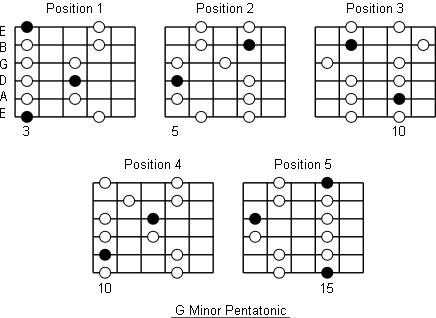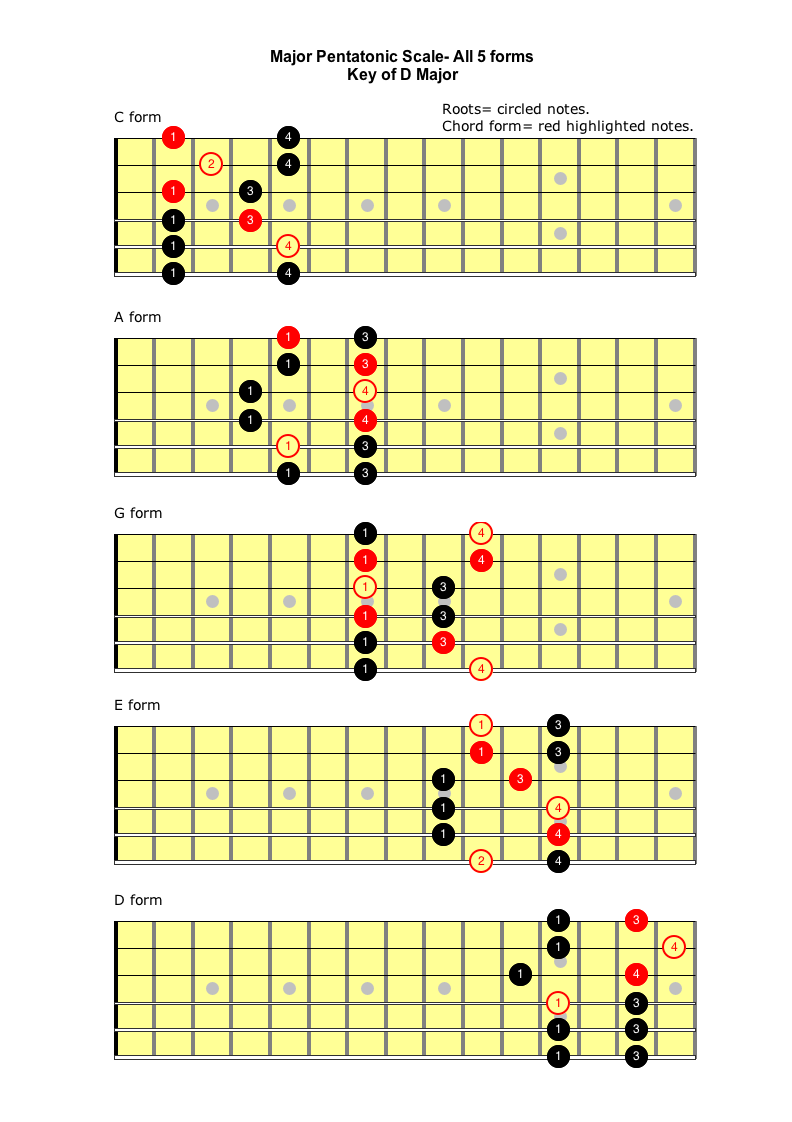

You will find by doing this you will developed a warmer tone and a more well rounded sound within your Bass Lines. The root note of E is typically played with the 2nd finger which allows us to take advantage of notes in the lower register of the instrument with our 1st finger. However by looking at the tab we can see that although we are playing the exact same notes the frets we are playing are slightly different. The E Minor Pentatonic Scale In 2nd Position E Minor Pentatonic 2nd Positionīy comparing both the 1st and 2nd positions we will be able to see both similarities and differencesįirstly if we look at the notation of both positions we can see that it is exactly the same in regards to the notes being used and the order in which they are played. E (7th fret A string)Į Minor Pentatonic scale Suggested Fingering. So let’s take a closer look at how we are going to play the E Minor pentatonic scale in 1st position. This I feel is the main reason that most of my students favour this position. It is because the root note of E is played with the 1st finger this position will feel the most natural to play as the hand remains in the most natural and relaxed position. So we have briefly encountered this position at the top of the article. The E Minor Pentatonic Scale In 1st Position E Minor Pentatonic Scale 1st Position So now go and grab your Bass and let’s put what we have learnt into practice!!!! So we can play a G Minor arpeggio under the G Minor chord and a D Minor arpeggio under the D Minor chord.

Well we now know the 2nd degree is G Minor and we also know the 5th degree of the scale is D Minor. Well let’s say we are working with a guitar player and they are playing chords that pertain to the 2nd and 5th degree of the scale.
Minor pentatonic scale how to#
So now we have this information how to we go about using it? The table below will show us the tonality of each degree of the E Minor Pentatonic Scale. Therefore we need to know the tonality of each degree of the scale in order for us to be able to utilize the correct arpeggios. If we take a look at the article on the E Major 7 arpeggio we will recall that arpeggios are the foundation of our Bass Lines and thus we need to understand them in order to excel within our Bass Line creation. We can see how the E Minor pentatonic scale is constructed from the E Natural Minor scale.īut there is an additional piece of information that we need in order for us to create effective Bass Lines. The E Minor pentatonic scale is based of the E Natural Minor scale and by using the formula outlined in the table below we can begin to see how this scale is formed. Well this also rings true for the E Minor pentatonic scale. So let’s dive in! How The E Minor Pentatonic Scale Is Constructedįirstly if we revisit the articles on the E Major and E Minor scales we will recall that they are constructed using a formula. There are also some great additional resources like this one (Affiliate Link) that you can use alongside this article to help you further your knowledge and improve your fluency when playing the pentatonic scale all over the fretboard. The rest of this article will not only teach you how to play the scale in multiple positions all over the fretboard, it will also help you to understand how the scale is constructed so you are able to use it within any musical context. Which could potentially limit you in regards to your Bass Line creation. I typically find that once a Bass Player has learnt to play a scale in a particular position they tend to stick to it.

So this is indeed one of the correct ways in which you can play the scale on the fretboard. Th e E Minor Pentatonic scale consists of 5 notes E G A B D and can be played by fretting the 7th and 10th frets of the A string, the 7th and 9th frets of the D string and the 7th and 9th frets of the G string and this is known as the 1st position. But just like the C Minor and D Minor pentatonic scales a thorough understanding of this scale and how to use it can serve us very well for the entirety of our Bass Playing journey. The E Minor pentatonic scale will almost certainly be a scale that you are familiar with especially if you are into your Rock and Metal music.


 0 kommentar(er)
0 kommentar(er)
